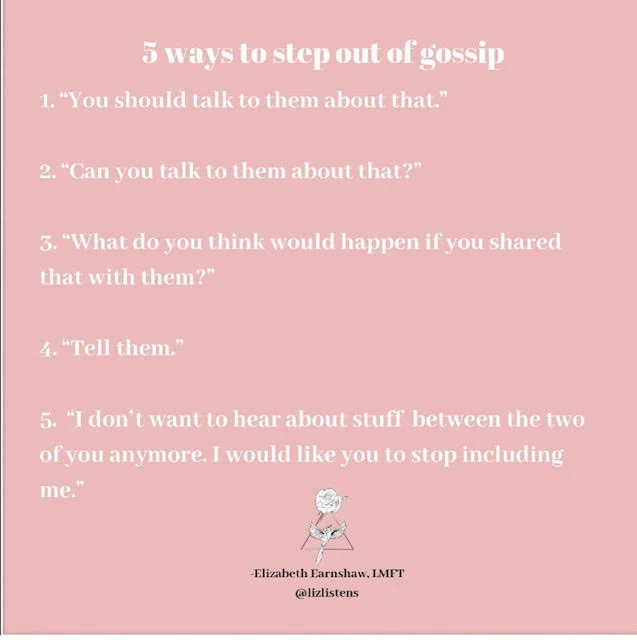The Gossip Effect
"If you can't say anything nice, then don't say anything at all." -Aesop (c.620-560 BC)
This is a quote we’ve all probably heard since we were very young and it goes to show that gossip has been around as long as we humans have gathered in social circles.
Did You Hear?
When we think of gossip we probably think of it as someone in our life sharing malicious talk and stories about someone else in our life. Recent studies show that most people gossip for an average of 52 minutes per day. That’s a lot of time!
Let’s take a moment to understand what gossip really is. The textbook definition is the sharing of information about someone who isn’t there. The info can be positive- “Did you hear, Olivia had her baby?” It may be work-related- “The boss is going to be making budget cuts.” And it can also be negative- “He’s been drinking way too much.” As humans, we’ve developed this method of communication, naturally, as we’re social animals and sharing news about other members of the group is a way to protect and connect with one another.
Some Thoughts.
Typically, someone sharing negative gossip with you is doing so because they are feeling uneasy or tense about the person they are talking about and are looking for you to join in their negativity and validate their feelings.
However, this isn’t your job. It’s important to remember that you don’t have to ease their conflict, act as a mediator or even take on their anxiety. Ideally, they need to resolve their uneasiness on their own, and your involvement may be keeping them from doing so. The two people involved are the two who should be resolving and communicating about the issue at hand.
A post came up recently in my Instagram feed that really resonated. Elizabeth Earnshaw, LMFT shared in the image below, noting this idea that you can prepare a “script” for yourself to ease your way out of the situation by clearly stating your boundaries. In other words, a few “go-to lines” that you can repeat to yourself, to remind both you (and them), that they should be taking their concerns directly to the person they’re speaking about.
Some Questions.
How do you know if you, yourself are just letting off steam or maliciously gossiping? It would be important to dive deeper into your beliefs and intentions to discover your authentic feelings. You can start by asking yourself the following questions.
Am I working toward a solution and committed to helping the situation? If so, then confront the problem head on, by making sure you are talking to the right person about it, and that they’re comfortable with you sharing the information. Another question to ask yourself... If this person were here, would they be ok with me sharing this? If not, then it’s probably best to stay mum.
In the end, if sharing malicious and hurtful gossip is the only way you know to connect with people, you may be avoiding dealing with something. This would be a helpful avenue to explore in talk therapy or with a close friend who values self-improvement and growth. Learning how to confront and communicate with the people in your life directly, can teach them (and you) how to work through difficult situations. As daunting as conflict and confrontation can be, the end result is healthier communication styles for all involved.
As always, if I can be helpful in any way, please don’t hesitate to reach out! All of my information can be found here.


